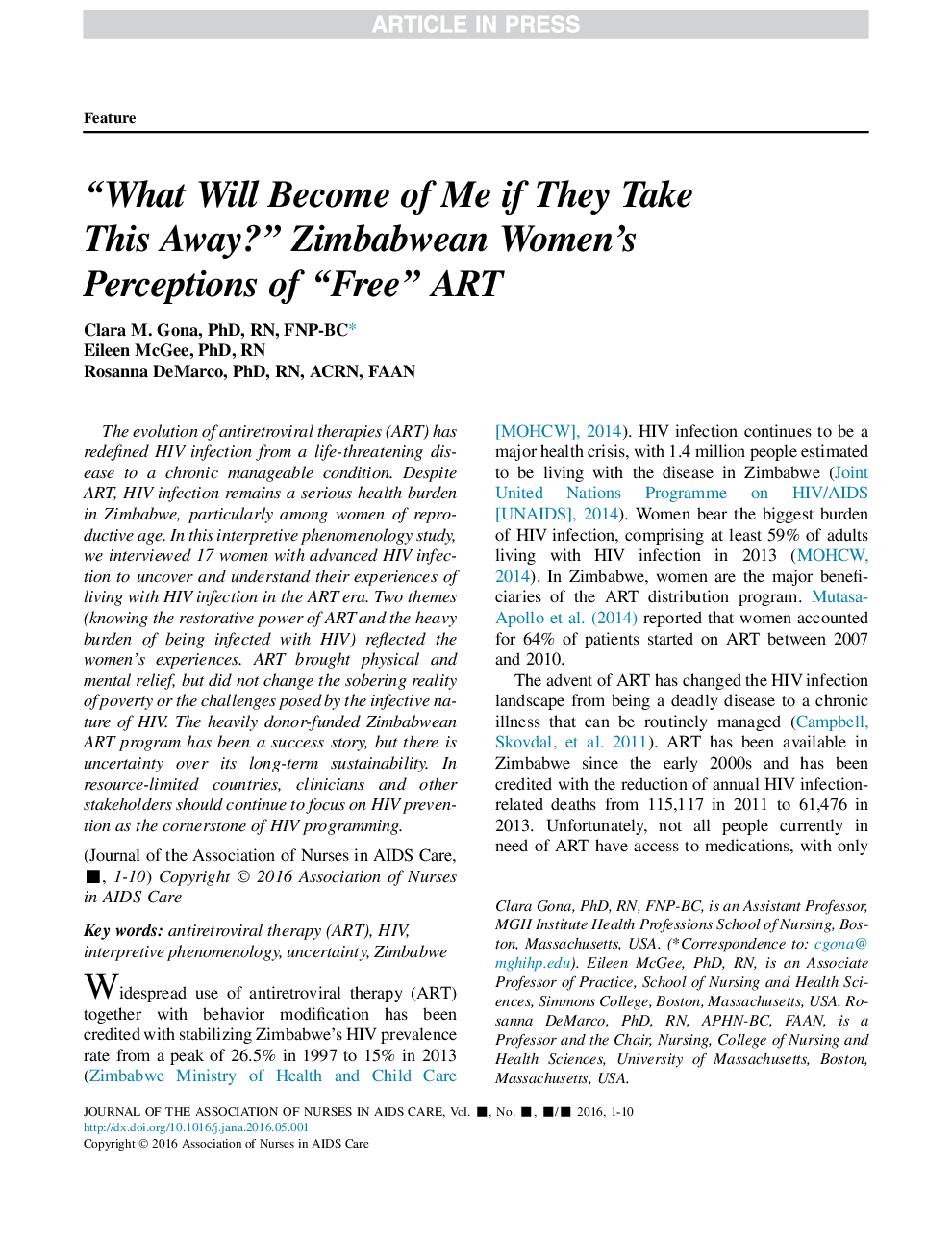| Article ID | Journal | Published Year | Pages | File Type |
|---|---|---|---|---|
| 5569155 | Journal of the Association of Nurses in AIDS Care | 2016 | 10 Pages |
Abstract
The evolution of antiretroviral therapies (ART) has redefined HIV infection from a life-threatening disease to a chronic manageable condition. Despite ART, HIV infection remains a serious health burden in Zimbabwe, particularly among women of reproductive age. In this interpretive phenomenology study, we interviewed 17 women with advanced HIV infection to uncover and understand their experiences of living with HIV infection in the ART era. Two themes (knowing the restorative power of ART and the heavy burden of being infected with HIV) reflected the women's experiences. ART brought physical and mental relief, but did not change the sobering reality of poverty or the challenges posed by the infective nature of HIV. The heavily donor-funded Zimbabwean ART program has been a success story, but there is uncertainty over its long-term sustainability. In resource-limited countries, clinicians and other stakeholders should continue to focus on HIV prevention as the cornerstone of HIV programming.
Related Topics
Health Sciences
Medicine and Dentistry
Infectious Diseases
Authors
Clara M. PhD, RN, FNP-BC, Eileen PhD, RN, Rosanna PhD, RN, ACRN, FAAN,
